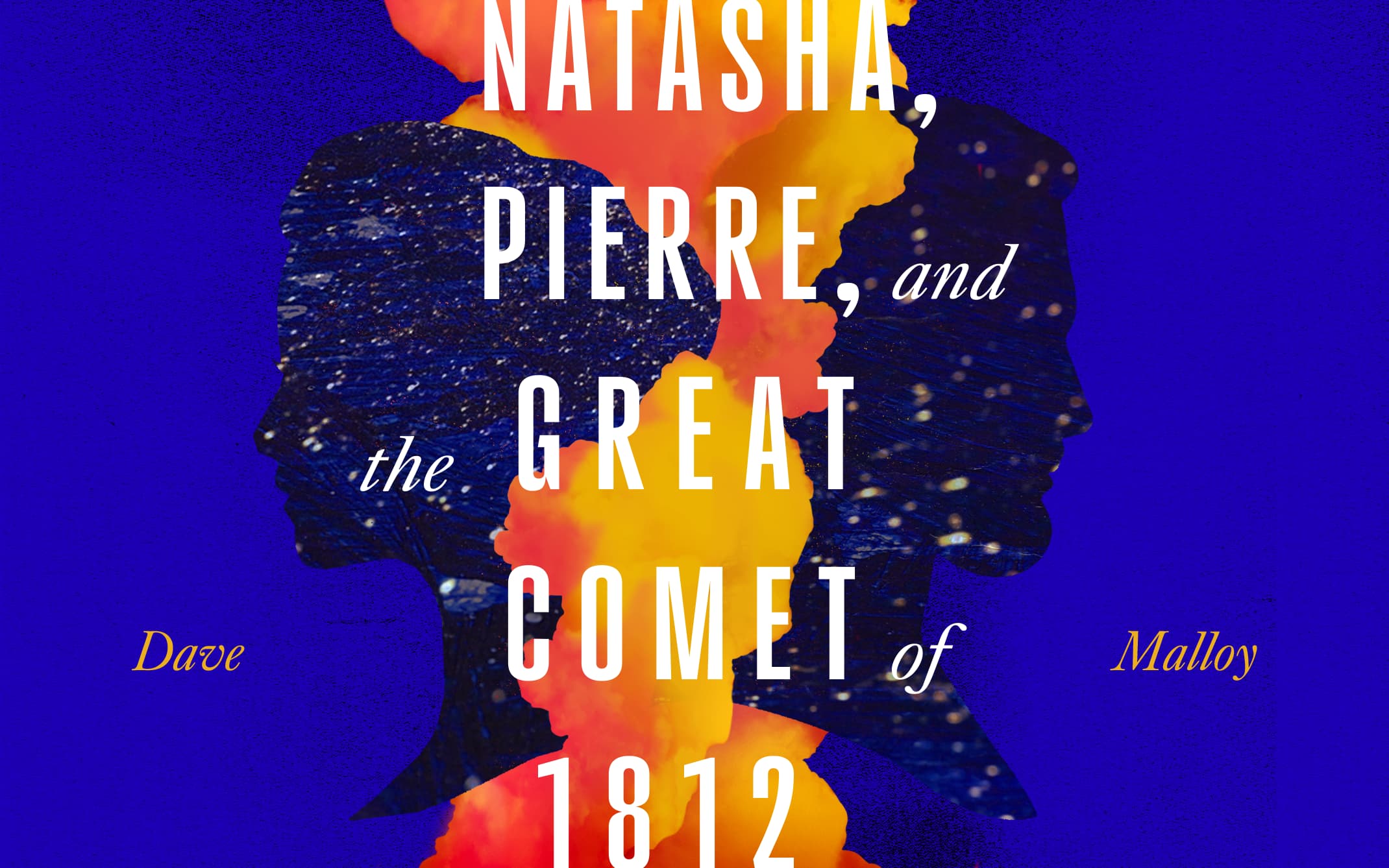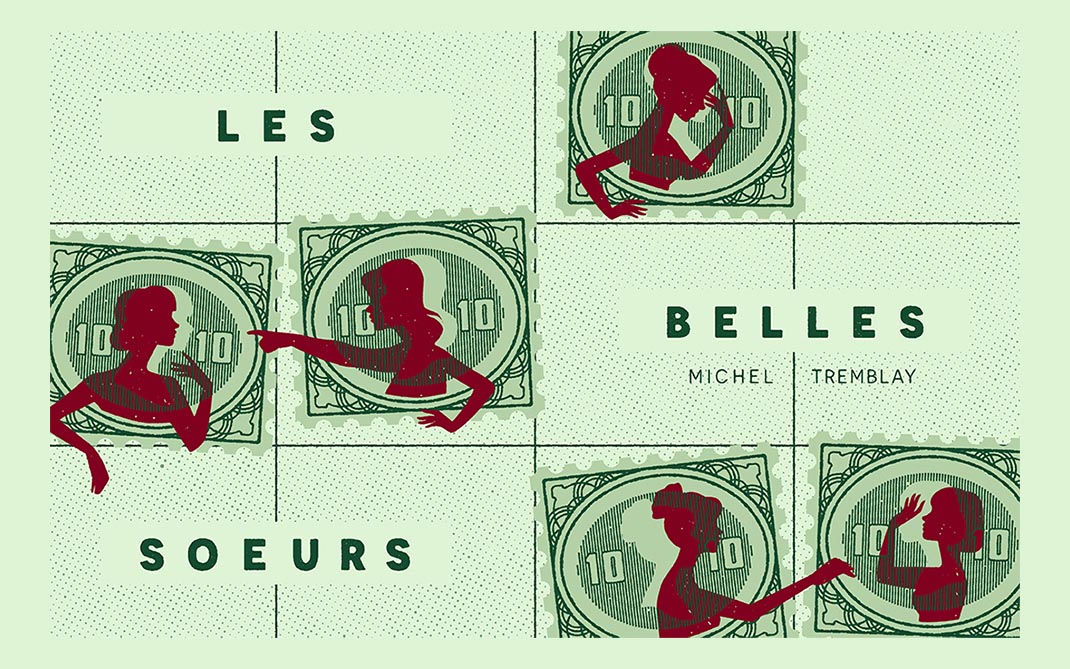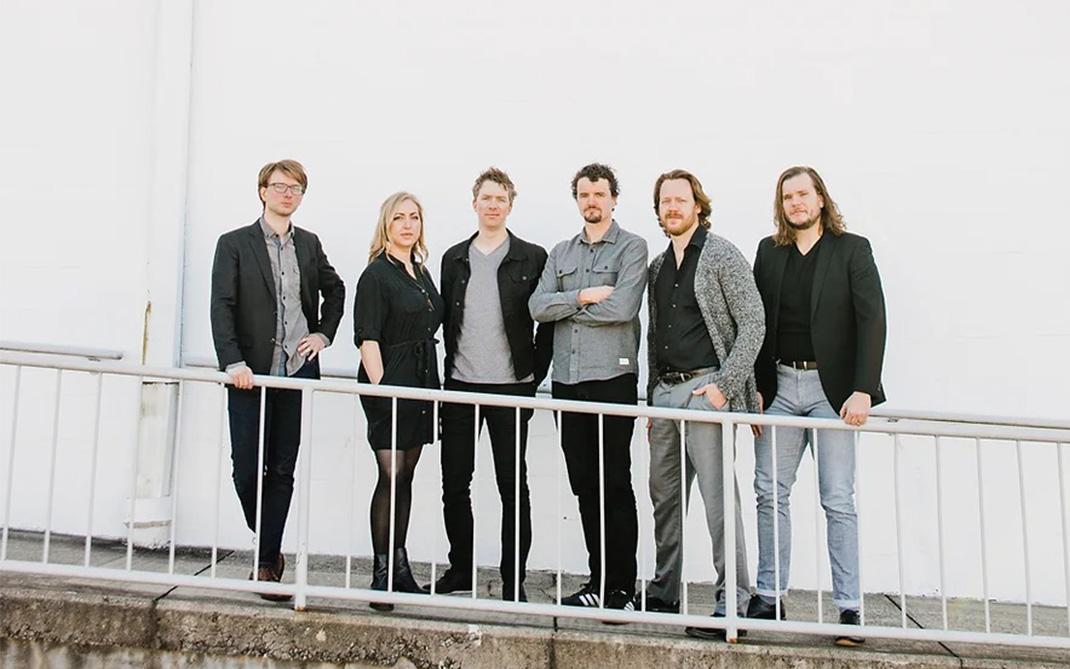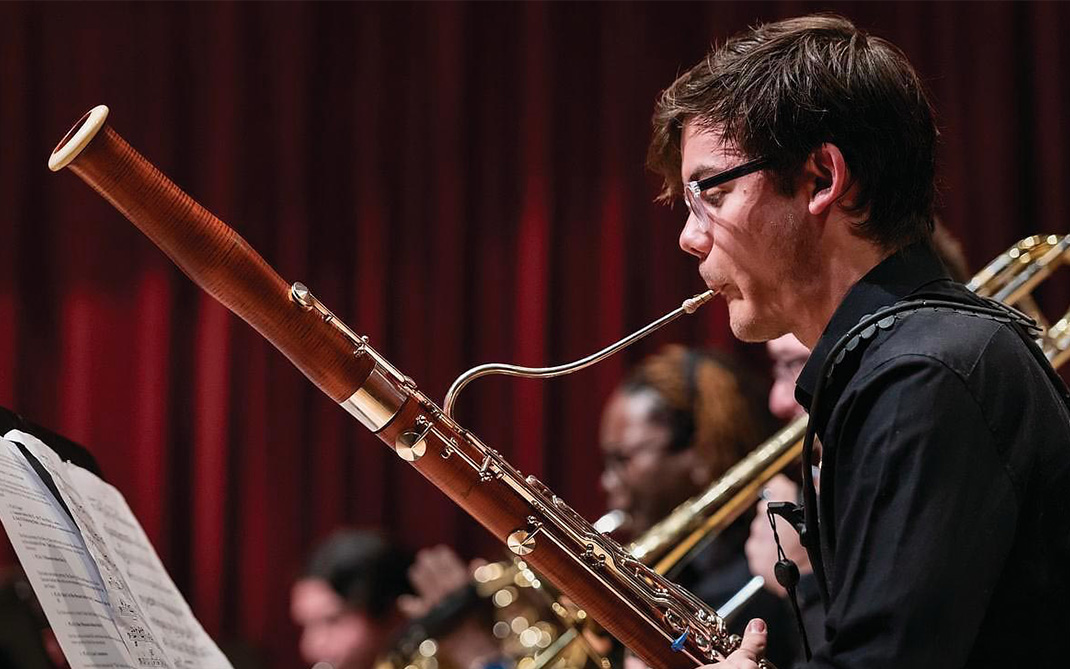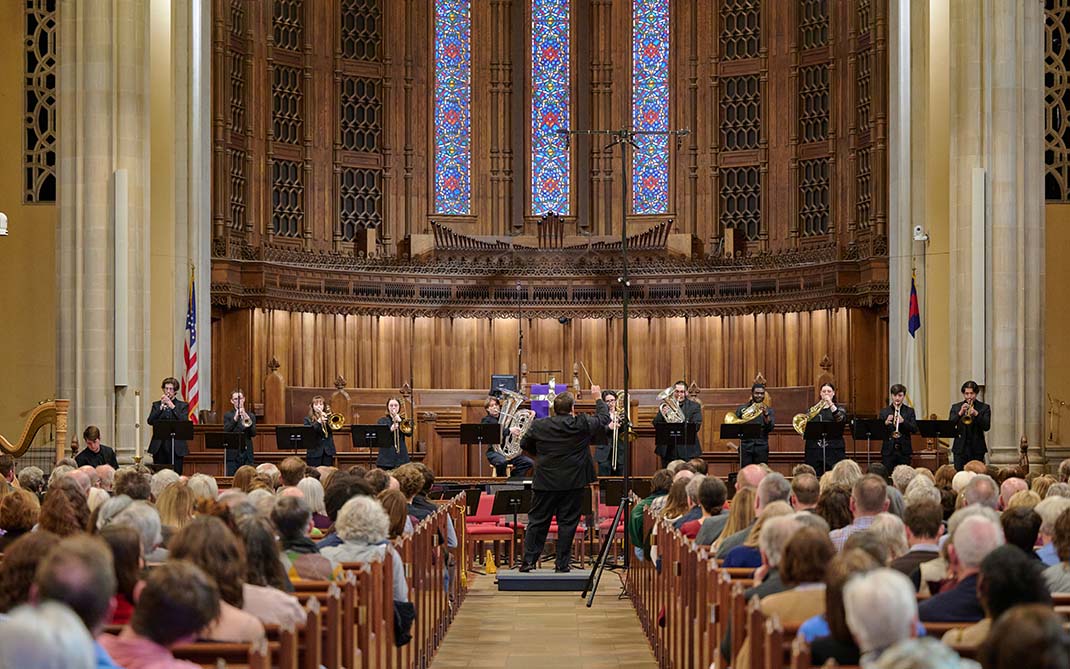Eisa Davis
The views and opinions expressed by speakers and presenters in connection with Art Restart are their own, and not an endorsement by the Thomas S. Kenan Institute for the Arts and the UNC School of the Arts. This interview has been edited for length and clarity.
Eisa Davis is a woman of many talents, all of them considerable. She has authored several acclaimed plays, including the historical drama “Bulrusher,” which was a finalist for the Pulitzer Prize, and “Angela’s Mixtape,” an autobiographical comedy with music that chronicled her coming of age in Oakland, CA under the tutelage of the powerful women in her life, including her aunt, the legendary activist Angela Davis. Eisa also starred in the play’s premiere, playing herself.
As an actor, she has amassed an impressive resume onstage, receiving an Obie Award for Sustained Excellence in Performance for her work in theaters throughout New York City. Her TV and film credits are no less remarkable and include recurring appearances on the award-winning series “House of Cards” and “The Wire.” She is also a singer-songwriter who has released two albums, “Somewhere Else” and “Tinctures.”
In recent years, she has also been writing for television, including on two seasons of the Netflix series “She’s Gotta Have It.”
In this conversation with Pier Carlo Talenti, Eisa discusses the generative and industry-changing impact of formally banding together with artist friends who share not only one’s aesthetic values but moral imperatives as well.
Choose a question below to begin exploring the interview:
- What projects are keeping you busy and excited these days?
- Can you talk about what this last year has shown you about what needs to be changed so that your working conditions, whether as a writer or as a performer, can be improved?
- Do you talk with your fellow artists about the marketplace of the arts, about money? Not only making a living wage but also how your art is supported by the marketplace?
- When the pandemic is over and large institutions open up again and you start working with them again in the theater as a performer and writer, do you have a plan for getting them to change?
- Looking back at your career, both as an actor/performer and as a playwright, if you could snap your fingers and change one system or way of operating in either sector, what would that be?
Pier Carlo Talenti: What projects are keeping you busy and excited these days?
Eisa Davis: It’s hard to choose, because I have a few creative children. I don’t want to say I have a favorite, so I’ll say a few things.
There’s this really amazing project that I’ve been working on which is an adaptation of a memoir by the youngest member of The Little Rock Nine. This a limited television series that we’re working on. Carlotta Walls LaNier is her name, the woman who wrote this book, “A Mighty Long Way.” We’ve just been developing it. I’m in the process of revising the pilot and getting the whole series together.
What’s interesting about it is that it’s just a story that takes on more and more resonance. It’s about desegregation in Little Rock, AR in 1957 and so many of these issues of violence and the response to change, to the call for equality, the call for justice, what kinds of conflagrations that brings. I’ve just been really, really, really fortunate to be able to work with Carlotta and this beautiful group of producers.
One of those producers actually — I think the reason why I have this job at all — is Chadwick Boseman. He and I knew each other back in the day when we both were in the Hip-Hop Theater Festival in New York. A lot of people don’t know that Chad was also a playwright and wrote really amazing plays and verse in the hip-hop aesthetic. We knew each other from back then, and I think the reason why they reached out to me as a writer was because of that time when he and I worked together, when he actually was in a couple of plays of mine, workshops of plays of mine.
It’s obviously been a huge loss with him gone so unexpectedly. We’re doing this project in his honor in a lot of ways.
Pier Carlo: Does it have a home yet?
Eisa: No, not yet. It’s something that we’ll be taking around to see where the right home is for it.
Pier Carlo: And Carlotta is still with us?
Eisa: Yes, she is. She’s such an amazing character, and I love getting to know her both through her words, imagining her life, and then of course having conversations with her here and there.
It’s remarkable because I think there are so many ways in which the way that I was raised in the family that I was raised inside of … I almost identify more easily with this generation, this Boomer generation of my mother’s and of my aunt’s and of Carlotta’s. I think that’s a function of childhood, where their story and stories and the struggle and movement that they were in and continued to be in took precedence. In some ways I feel like I know that so well; it’s like second nature.
Then at the same time — and in some ways this is kind of a segue to another project that I’m working on — there’s all of the ways that I’m trying to establish my own voice, my own aesthetic voice. This project that I’m working on at Performance Space New York, which is the old P.S. 122, is this really amazing group of artists, Black women artists. There’s Okwui Okpokwasili, who’s been on the series with you. There’s Lileana Blain-Cruz, amazing actors like April Matthis, Stacey Karen Robinson, Joie Lee. They’re unbelievable people who have all gathered for this.
Basically we just all have wanted to celebrate each other as Black women artists in the theater and in the other genres in which we work and other disciplines, and we wanted to find a way to bring the same kind of energy that we bring to each other in our friendships into our working conditions. We’ve been able to, with Performance Space, just really develop our own kind of residency that is going to have offerings.
We’re working on some of the unproduced plays of Kathleen Collins, who is this really powerful literary foremother that I think a lot of us are just starting to get to know over the last six years. She passed away in the ’80s at the early age of 46 of breast cancer, and her daughter has made it her mission to distribute her work; get her films showing; and get her writings, her plays, her short stories and unproduced screenplays published.
So we’re exploring Kathleen Collins’ work, and then we’re exploring a piece of mine and doing it in this way where we’re having these outdoor performances that are COVID-safe.
Pier Carlo: When did this start, and who pulled it together?
Eisa: I pulled it together, I guess. [She laughs.] I guess I would say that, but I think —
Pier Carlo: Does it have a name?
Eisa: Yes, it’s called “Afrofemononomy.”
When I say I pulled it together, that really only means that I’ve been doing the organizing, because I couldn’t have done any of this if it weren’t this group effort and if it weren’t all of the many creative ideas and thoughts about how to bring us together. That came from the director Charlotte Brathwaite. I came to her, and I was like, “What can we do with these plays?” Because Nina Collins, Kathleen’s daughter, was like, “I really love these plays, this quartet of plays, ‘Begin the Beguine.’”
At first I was working on them myself and kind of directing them myself. Then I started talking to Charlotte about it, and she started helping me see the plays in a way that really would allow us to center the Black woman’s interiority that’s embedded in these plays. Then we brought them to this group of artists that we’re all just friendly with.
Then we got this opportunity through Performance Space to have funding. Basically [laughing] we get to take over the theater. And I was just like: “OK, let’s figure out a way to do this, with these outdoor performances, with a kind of web-based radio where we can post film and sound recordings of our sessions when we meet, also films that people are inspired to make in this process as we explore these issues around health, around our way of holding ourselves as artists at the same time that we’re struggling with all of the disparities and violence that we have to contend with as Black women.”
So we’re just trying all these really cool experiments that, again, I don’t know if we would have been able to have this opportunity were it not for the health emergency that we’re in and also were it not for the calls for our field to change the way that we engage artists.
Then there’s also this really cool installation with music and lights, and I think I’m going to be in this tank full of water and singing. There’s going to be a pasture of hair. There’s going to be a way for performers to be able to interact sonically with the audience but not be in the same space. So we’re just trying all these really cool experiments that, again, I don’t know if we would have been able to have this opportunity were it not for the health emergency that we’re in and also were it not for the calls for our field to change the way that we engage artists.
This way of just opening up the space and saying, “Here’s some funding. Here’s the resources. Here’s all of the things that we’ve had as these primarily white theater establishments and institutions. And let’s see if we can offer those resources to some of the voices that may not have been allowed in these spaces prior to this and just see what it is that you all want to do.” This kind of model of just taking over the space and just saying, “Here, this is what we’re going to do,” that to me solves so many of the issues that we’ve had when it comes to theater, when it comes to the art world, when it comes to film, television, music. It’s just like, “Just hand over the resources, and we’ll do what we can do with it and make some magic and make some excellence in community.”
Pier Carlo: You did what we’ve discovered so many artists are doing, of course, which is given restrictions, you come up with incredibly innovative ways to make and present your work. It’s kind of incredible.
You said something very interesting, I’m paraphrasing, that you wanted to take the energy from this friendship with these artists and use it to improve your working conditions. Can you talk about what this last year — which of course was not only about the health crisis but, as you said, crises of power, reckonings with injustices in power — showed you about what needs to be changed so that your working conditions, whether as a writer or as a performer, can be improved?
Eisa: Well, such a huge question, right, because of course that question goes to the central question of how to make our country and our worlds more just and equal, period. We’re talking the day after the guilty verdict of Derek Chauvin came down. And there’s so much feeling, there’s so much to process because this is something that doesn’t happen very often. What happens very often is that Black folks, people of color, trans folks, Native folks, Latinx folks are hurt or killed by state racialized violence. And there’s often no reckoning, no consequences whatsoever.
And we’ve got a guilty verdict yesterday, and yet I’m still Black. And yet there’s still these murders that are happening at the hands of the state, with Daunte Wright and Ma’Khia Bryant, who was just killed yesterday at 16 years old. And so these issues of life and death are very much on my mind as I try to respond as an artist and also within a community of artists and in a community of people who want things to be different than they have been over this violent history in our country.
I think what it shifted for me and for the field is that I think there’s just a refusal where everyone’s just saying, 'No more. I’m not going to take this injustice that I’ve experienced any more, and I want to be able to find sustainable ways to be able to thrive as people, as beings and as artists.'
While we’re in this period without theater and without audiences that you can feel and you’re often performing for a computer or for a feed or scroll, there’s all of this theater that’s happening in the streets, that’s happening in politics. And I think what it shifted for me and for the field is that I think there’s just a refusal where everyone’s just saying, “No more. I’m not going to take this injustice that I’ve experienced any more, and I want to be able to find sustainable ways to be able to thrive as people, as beings and as artists.”
I think for me there’s just been a real reorientation toward a true North, a recognition of mortality and who ends up in the archive and trying to enter the archive in the work that I do, using the silence and the stillness to remember what it is exactly that I want to leave behind, how it is that I want to work.
So, yeah, I think it’s about returning to dreams, returning to my dreams. I feel that working this way with this group of “Afrofemononomy” artists is working in community in a way that is almost like — It is; it’s a dream! I get to do these things that I’ve been wanting to do as a performer and as a creator for so long, and because I’m in this warm and loving space with these other Black women, I can do that.
Pier Carlo: What is it about this particular experience that you might not have been able to do in the past? Why is it happening now? Because it’s not just the fact that you got some money, that you got a grant, right?
Eisa: That’s right. I mean, in some ways that facilitated the ways in which we are able to make work, but the collaboration had already begun because the relationships had already started, the admiration for each other’s work had already started. Just like we didn’t need 2020 for clarity on racial justice or all of the various inequalities that we suffer from, it’s been crystal-clear that once we work together and don’t have to spend all of our time explaining what’s important to us or why we want to do things in a certain way —
Pier Carlo: Explaining to whom?
Eisa: Explaining to a theater establishment. Instead of having to have this text of, say, my work that I then give to a theater and say, “Will you produce this or not?” I didn’t have to go through that process because I already know, amongst all of us as artists, we are going to support each other’s work no matter what that is.
Then with Performance Space, they simply said — this is Jenny Schlenzka, who’s the artistic director there — she said, “I don’t care what you all do. Just make something together.” And I was like, “That’s perfect. That’s really what I want.” So there’s this way in which we just get to leapfrog over so many of the kinds of censorship or the endless proving of value that all of us have had to do over the course of our careers when it comes to our work, when it comes to our narratives, when it comes to our stories and our priorities and values.
Pier Carlo: Do you talk with your fellow artists about the marketplace of the arts, about money? Not only making a living wage but also how your art is supported by the marketplace?
Eisa: It definitely comes up. That was something that we prioritized as we were creating the pay structure for this. I wanted to think about taking care of people through salaries.
Pier Carlo: That’s interesting. So you got this grant, you got the space from Performance Space and then it was up to you to decide what the pay structure was, how the money was going to be dispersed?
Eisa: That’s right. Yup. Yeah.
Pier Carlo: That’s so revolutionary, right?
Eisa: Isn’t it? Isn’t it? Yeah. We got the space and we got the money, yeah.
Pier Carlo: But it was not dictated how it was going to be dispersed. So how did you go about coming up with a plan?
Eisa: Right. We’ve been working with an amazing, amazing project manager, Deadria Harrington — who’s working with New Georges, and she also works with the Movement Theater — and also Jennifer Harrison Newman, who’s a dear friend of mine, childhood friend, and is also an artist, choreographer, producer.
Talking with them, this whole concept of a budget as a moral document came up, and I was just kind of like, “Well, what’s important right now?” And what’s important to me is not spending money on a set, obviously, because you’re not having a production in the same way. But even were we to, I would still want to have the same emphasis on taking care of the people in a time where so many of us have lost salaries due to not being able to work in a place where audience gathers or where we gather as artists.
I just was like, “How can we give as much money as we can to all of the artists, regardless of what time you’re putting in?” Kind of like a universal basic income. “How can we give that to you regardless of what it is that you do in this project?” I think that that’s been really crucial.
I also wanted to think about if there are some artists who have higher needs than others. I’m working on this television project and I’ve been able to take care of my own needs that way, so my need as an artist with my fee structure is less than someone who’s only been working as an actor and has not gotten the same salary.
Pier Carlo: Was this by consensus?
Eisa: Well, I would say that it was more an idea that I had and then I just kind of ran it by everybody and I said, “This is what I’d like to do.” And like I said, I was hoping for this kind of thing where some people would get more, maybe some people get less, and I think that it ended up with pretty much everyone getting an equal amount. But I think I’ll probably end up getting less [she laughs], just because I’ve kind of used my salary as the contingency for if we go over budget, you know what I mean?
Basically the way that this has all kind of come about is just that I’ve just been trying to think through it and lead it. Then all of the other artists, I go to them as thought partners, like, “What is it that you want to do?” Or, “How do you feel about this? Do you think that’s a good idea? Should we do this?”
It’s been a real learning process for me, because I’ve worked in all of these places where it’s just been about like, get it done, handle it, result, result, result. And what’s been really great with working in this group is that I’ve got a Deadria or I’ve got a Jennifer, I’ve got a Charlotte, Kaneza, Lileana, all saying: “Just slow your roll. Let’s respond to this. Let’s take time to do things on our own schedule and our own pace, privileging our health, our ease, our care, as opposed to trying to meet a deadline, trying to meet some version of obligation that we feel we have to have.” Because, of course, we are the way that we’ve been trained, and the way that we’re expected to behave is we have to do it twice as good, twice as fast.
It’s been this really wonderful evolution for me to learn how to work in this way, where I’m both responsible but also ceding control.
Pier Carlo: When the pandemic is over and large institutions open up again and you start working with them again in the theater as a performer and writer, do you have a plan for getting them to change? For instance, I mean, the thing that you said, budget as a moral document, is incredible. How are you going to convince large institutions that that is a priority, for instance? How are you going to get them to understand that prioritizing your health as an artist is as important as prioritizing your performance?
Eisa: Right, right. Well, thankfully, it’s not only my job to do this. I’m so glad it’s not only mine. It’s the responsibility of those organizations. If this is important to them, then they get to take on this burden. I think that the list of demands [#WeSeeYou White American Theater], it was a really important blueprint that kind of kicked off that conversation.
I think it’s simply, do you care about justice and equality? If you don’t and you don’t think it’s relevant, then you’re going to resist rethinking your organization. But if you do think it’s important, then you’ll listen to these coalitions ... And you’ll start thinking about how all of the imbalances in whose stories are important can start to be rectified.
I think it’s simply, do you care about justice and equality? If you don’t and you don’t think it’s relevant, then you’re going to resist rethinking your organization. But if you do think it’s important, then you’ll listen to these coalitions, these multiracial coalitions; you’ll listen to people with disabilities; you’ll listen to people who are the original caretakers of the land that your theater is built on. And you’ll start thinking about how all of the imbalances in whose stories are important can start to be rectified.
I think it’s really, again, all of these coalitions, all of this collective work and these ways that we keep joining together in order to continue to articulate what it is that we want. And of course this is going to keep taking a while, because we can do a lot when we put our backs into it and we recognize that the work is going to be hard and it’s going to require change. But it can be done. It really can be done. It’s going to be rough and it’s already been really rough, but ultimately it’s only for the good.
There have been all of these reports that have come out recently about how when you just basically make your institution more inclusive, when you make your institution something that is actually working toward climate sustainability, if you divest in fossil fuels — I know that seems kind of off-target, but I don’t think it is; I’m talking about just in general — that when you start moving towards these goals of justice, you actually can have a higher yield when it comes to your moneymaking, you know what I’m saying?
Pier Carlo: That’s how you convince the capitalists.
Eisa: That’s right. That’s how you get people to see, “Oh, this is actually going to be good for your bottom line too.” You get your optics, and you get your little money.
But sharing those resources is also really an important part of this piece. And that’s where we are, I think. You see that with everything coming out of the Biden administration right now. I think that same kind of ethos should really suffuse our theaters.
Pier Carlo: Looking back at your career, both as an actor/performer and as a playwright, if you could snap your fingers and change one system or way of operating in either sector, what would that be? What could have improved your overall health as an artist?
Eisa: Oh, my goodness. You’re saying I can be my own genie.
Pier Carlo: Exactly.
Eisa: And give myself the do-overs.
Pier Carlo: The do-over.
Eisa: Great, the wishes. Well, first of all, let me just say, thanks for asking that question.
Also I’m realizing that I also have spent so much time being heartbroken, disappointed, and then having to live with that and finding a healthy way in that I’m just kind of like, “Oh, well, everything was fine as it was. I just don’t even want to think about that.” Because in some ways it just exhumes some of the buried dreams or something.
Pier Carlo: I certainly don’t want you to be retraumatized!
Eisa: No, not at all! No, I think it’s a great question. No, no, no. I appreciate it. Oh, I really do, I really do. Also I’m just like, “That feels selfish,” and it’s not selfish, right?
Pier Carlo: No.
Eisa: Just to have a fantasy or an imagined reality. That’s what we do; we’re imagineers. What is coming up? [She thinks for a long moment.]
I think there was a moment that came to fruition probably around, I want to say about eight or nine years ago, nine years ago, where I had all these beautiful things happen, like getting to have a play done in the city, a couple of plays done in the city, in New York. And they did OK and one was nominated for a Pulitzer, thanks to Paula Vogel and that whole panel. And I was continuing to write plays. And I think I got a little discouraged.
This is what happens to so many playwrights. This is — I am not unique whatsoever in this — where you come out the gate from school and you have all these fresh ideas and excitement and you’re young and you write all this stuff. And people respond to that and pay you some attention. And then, as in that lovely study that Todd London did, “Outrageous Fortune,” then there’s this kind of lag that happens after you’ve finished your first bout of being an emerging artist.
Pier Carlo: Right, the midcareer miasma.
Eisa: Yeah. I would send stuff around as a playwright, and people would say, “Oh, this is really lovely. We think you’re cool. What else you got?” And I know. There are so many issues that it’s multifactorial why something lands and why it doesn’t, and of course there are systemic factors at work. But sometimes when you’re this individual, it’s hard to tell. You could look at the overall numbers, but you don’t know what’s going on with you as an individual.
But I got discouraged, Pier, I got discouraged. And I was like, “Maybe I shouldn’t write any more plays.” And so I guess what I would try to fix going back into that moment is that I think I would say to myself … . There’s the tough love, which is the Quincy Jones quote, “If you’re feeling discouraged, you should be.” Which is kind of sad and messed up, but I get it. It’s sort of saying, “If you don’t believe in your own work … .”
... Just keep making the work. You’re the only one who can make your work, so just keep making it.
Or maybe you don’t even have to believe in your own work, to go with the Agnes de Mille quote. You don’t even have to believe, but just keep making the work. You’re the only one who can make your work, so just keep making it. It doesn’t matter if it’s going to land right now or not. Obviously we’re really glad that Van Gogh kept painting all those paintings, even though he had no success. Aren’t we glad that he kept painting? Not that I’m Van Gogh by any means, but I’m just saying, that is something that —
Pier Carlo: It sounds like there might also be a sense of betrayal, in that you had hit a stride, people were paying attention to you, and suddenly they’re not paying attention to you?
Eisa: It’s less about not paying attention. It’s more about, I guess, narratives, aesthetics and resources. I think what I was discovering was that the things that I was interested in narratively and the way that I was wanting to tell stories, that was not met with an understanding of that value, you know what I mean?
And it was kind of incumbent upon me to just — see, this is interesting — it was incumbent upon me to keep feeling that sovereignty and that value. But also the thing I’m learning right now in working in this community of artists is that if I had had that community of artists right then — I think I did, but it was more, I don’t know, more sparse or something like that — I think I would have felt like, “OK, this is a phase. Even if this phase lasts for a long time, it’s still OK.”
What’s hilarious is right after I had this moment of, “Oh, maybe I shouldn’t write any more plays,” right after that thought that I had actually started articulating to some friends of mine who were literary managers or worked at theaters, right after I said that, then I got the Herb Alpert Award.
As a performer I think I would just say there was a moment where I flipped from being ingenue to being grieving mother, and there’s no space in between. I think right there I just would have said to myself to not be afraid to go outside of the way that a casting director or a set of narratives that I’m supposed to fit into is thinking about me. Really at that point, I think — and I still think that way — the fix would be to just really lean into creating my own work and my own characters. That’s something that I’ve always done as a playwright, but then I often end up stepping aside and saying, “Oh, someone else can be in this or should be in this.” Or by the time I get to the point where the thing is going to be done, then I’ve aged out in terms of both actual physical age but then also what it is that I am interested in portraying. It’s a hilarious sort of bind to get into.
I think what it comes down to really on both the playwright and the performer side is just, again, even if I had lost faith or belief, just to keep doing the work and to keep making the work, period, and feeling that there’s a community that does appreciate it always. And that there’s a whole set of other artists who have been through this exact same scenario, and I only need to look to them to keep going.
May 3, 2021
